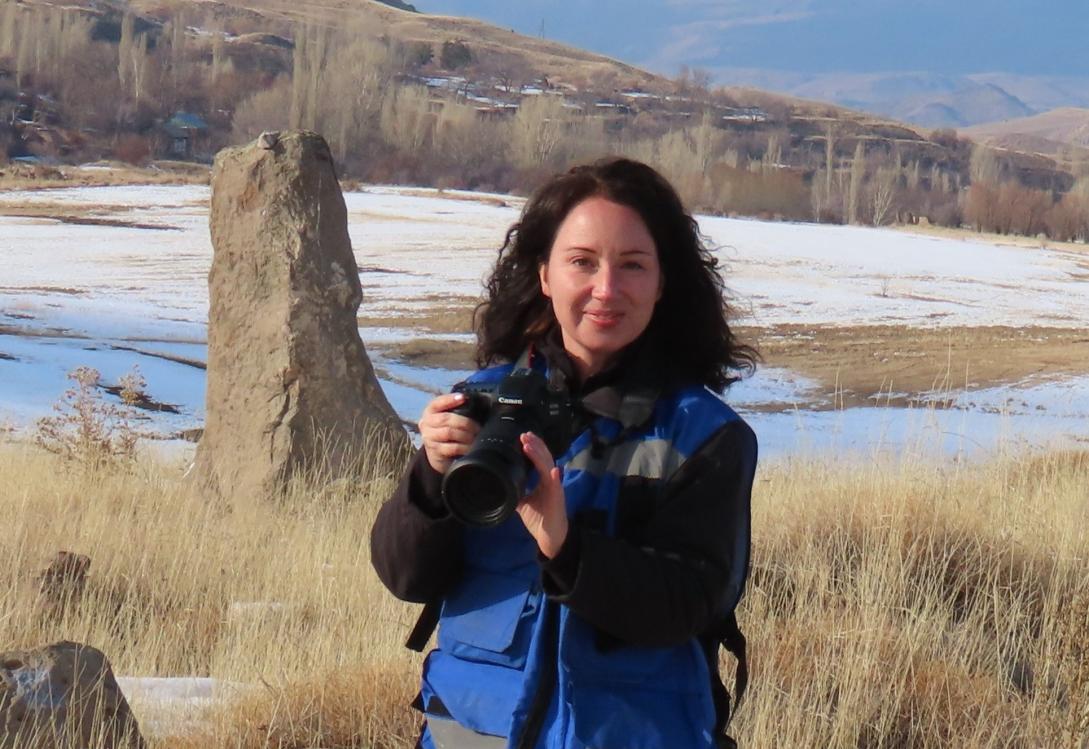"We need a mix of people to make the teams stronger" - Camilla Eriksson

"For as long as I can remember I have been interested in the world and society – not only interested, but I decided that I wanted to contribute to peace, security and development," Camilla says. She has studied social sciences (social anthropology and communication for development ), Arabic and Russian languages, and worked in different international and Swedish agencies with human rights and civil society issues.
"In my first mission in Palestine my knowledge of Arabic was very relevant – all civilian monitors had to speak Arabic. Here in Armenia it is very useful if you have some knowledge of Russian – we did not have Armenian interpreters for a long time because EUMA is a new mission, my Russian skills have been much needed here," Camilla explains.
Camilla is working in Forward Operating Base Jermuk together with 2 female and 11 male colleagues. She says that the usual 25 per cent of women in EU civilian missions could be increased. "We need a mix of people, including women, to make the teams stronger."
It is also important to have women on patrol while interacting with local women.
According to Camilla people bring different skills and talents to missions. Monitors with different backgrounds and experiences complement each other well. "Based on your professional background and gender, you may ask different questions, pay attention to different things and have different knowledge and ideas on how to solve tasks. This matters for the results that we are able to achieve. It is also important to have women on patrol while interacting with local women".
Speaking about skills that she as a woman with a civilian background brings to the team, Camilla says that communication skills are an asset. "50% of communication is listening. When we do interviews with people in conflict affected areas, listening is even more important - somebody who shows a genuine interest in people and who is willing to listen, makes people talk. Soft skills – like being able to create good relations and build trust – make people comfortable with us. Compassion and empathy are needed when people share difficult stories."
An important part of the monitoring job is report writing, which is something she enjoys. "I like the challenge of putting together a clear text of all the relevant information received during a patrol in a way that somebody would like to read it". During her job as a monitor she also gets the chance to practice one of her hobbies - taking photos and videos.
Speaking about challenges that she had to overcome, Camilla says that in her mission in Georgia she had to do a lot of off-road driving, which developed her driving skills a lot. "Now I enjoy all kinds of driving – off-road included," she says.
Having more women in missions is better for the overall team atmosphere and for all members to feel content, Camilla says. "The men in my team are supportive, we have a good time together, but it would be nice to have more women to talk to," she says.
Mission life can be addictive.
Traveling is also her hobby – she has visited nearly 100 countries, many of them as a solo female traveler. "Mission life is very enriching. You meet a lot of interesting people. As a monitor you drive in quite astonishing landscapes. You get an in-depth experience of a place, which you would not get from just traveling. Having such enriching experiences and doing something meaningful at the same time is what many people like about missions. Mission life can be addictive," Camilla explains.
Assessing the impact of different missions to respective countries, she says that sometimes it is difficult to measure the results of monitoring "We do not know what the situation would be if we were not here. We get a lot of positive feedback from local people. We see that our presence matters to them and many see it as a contribution to security and stability in the region."




